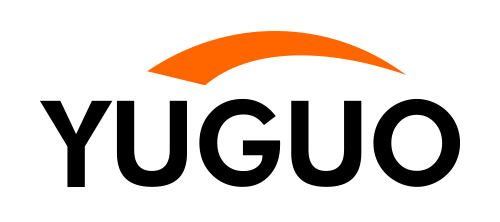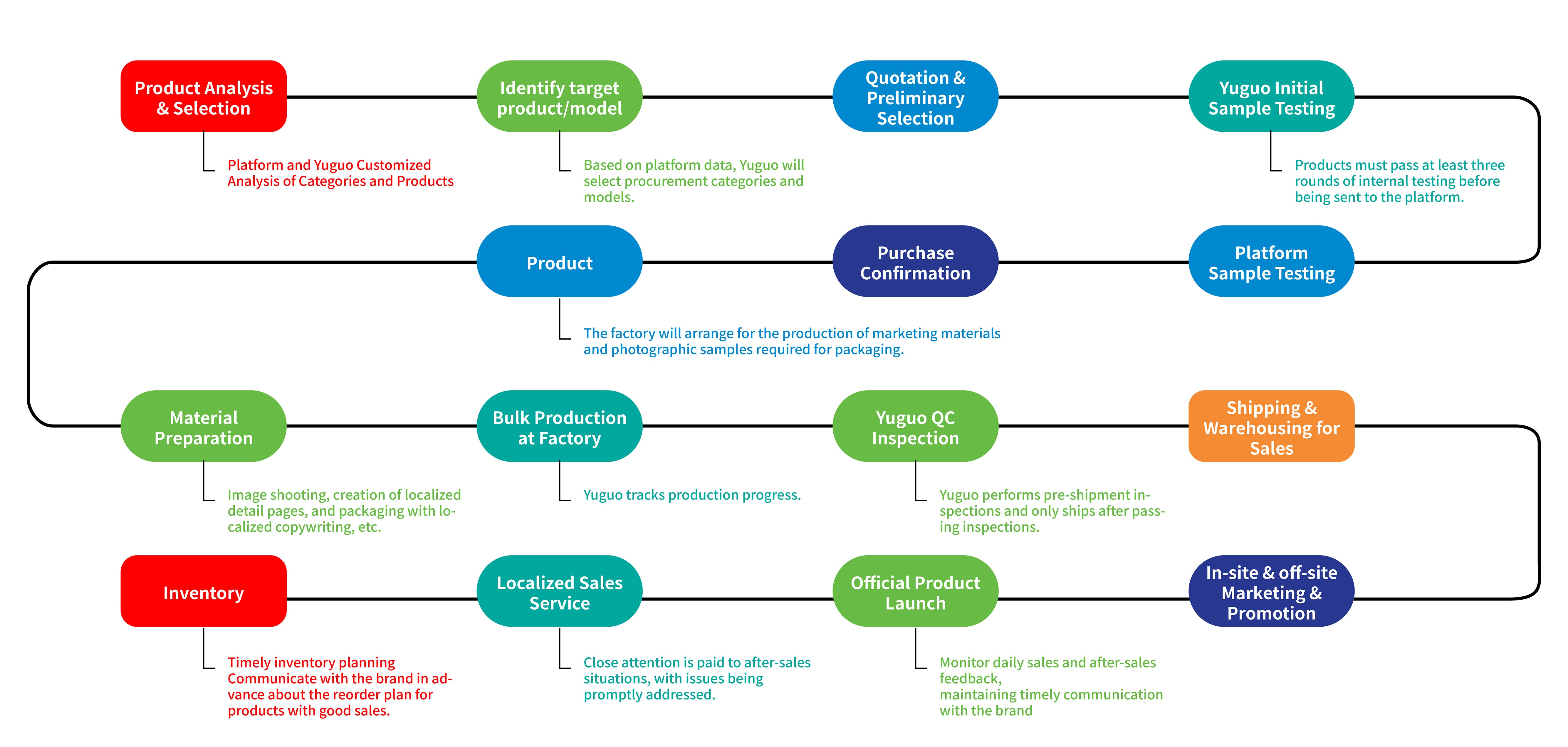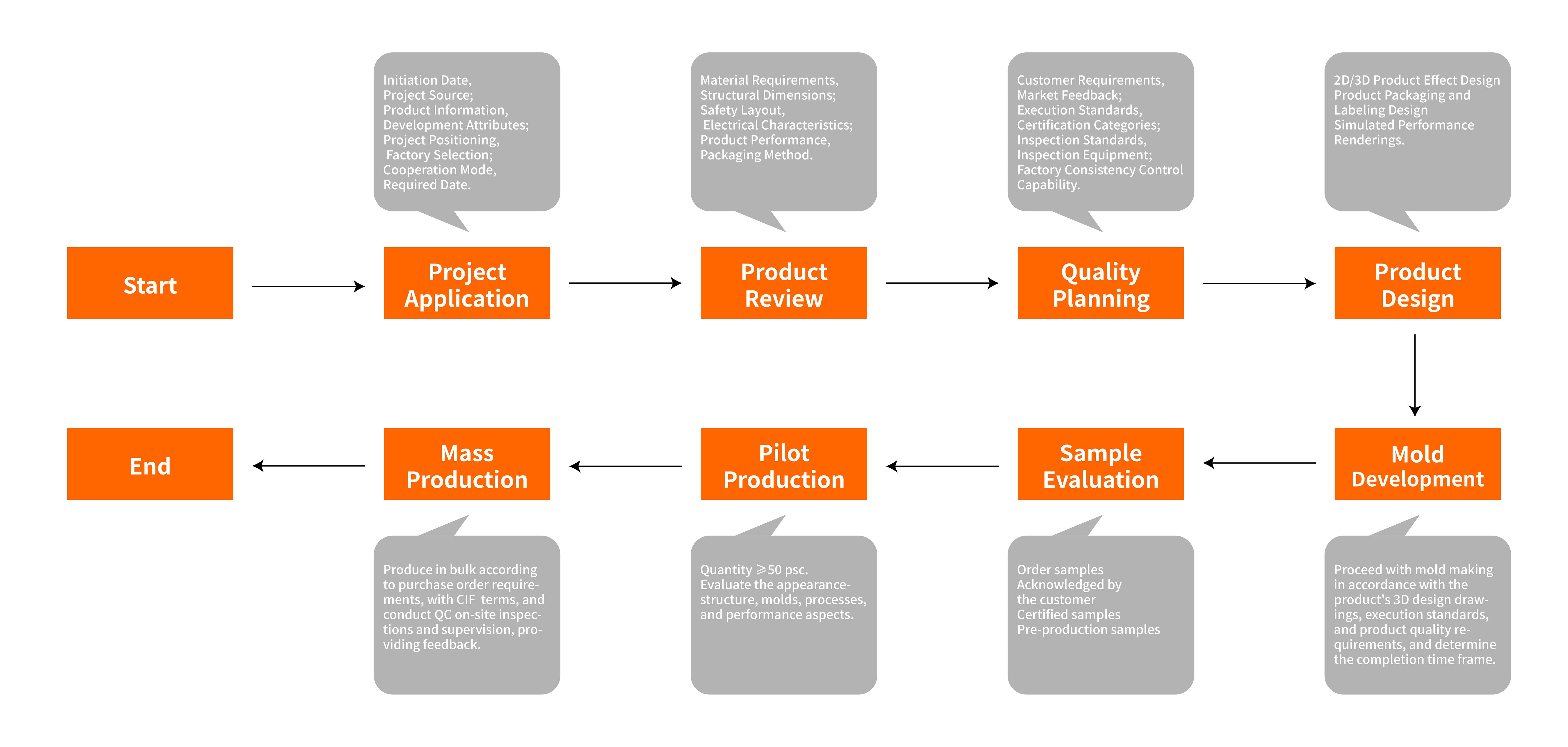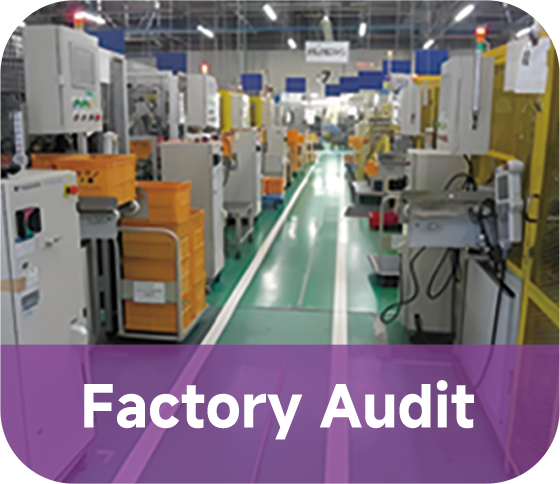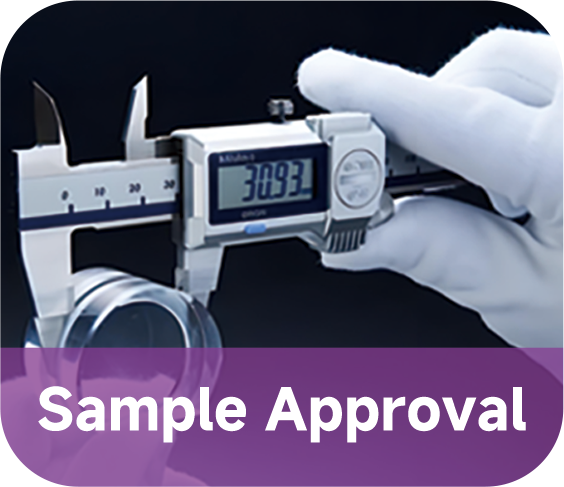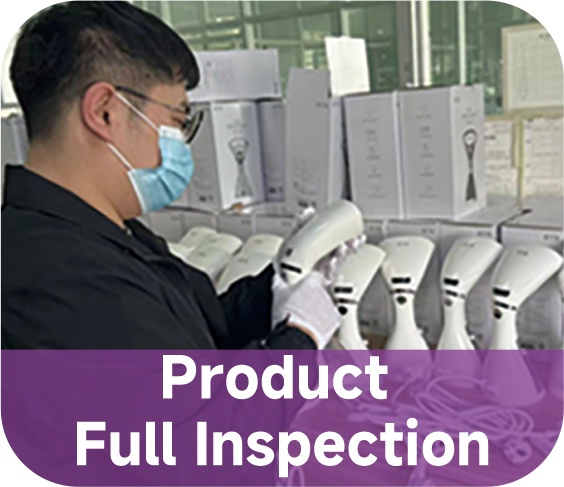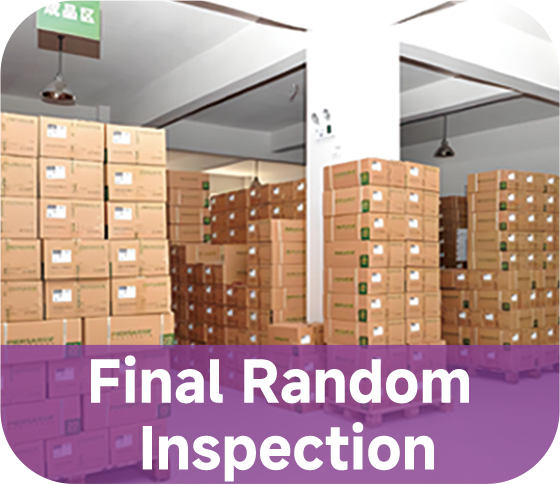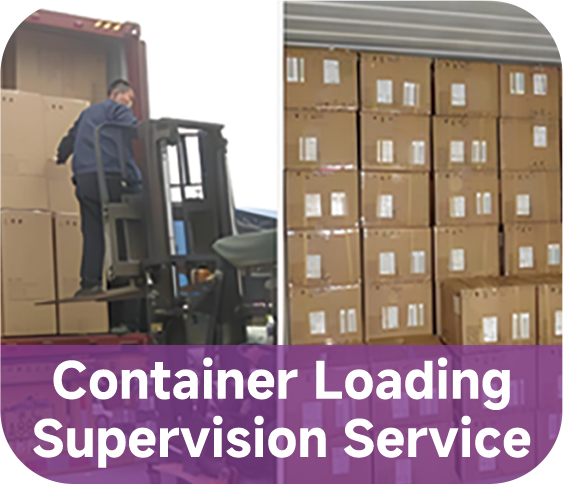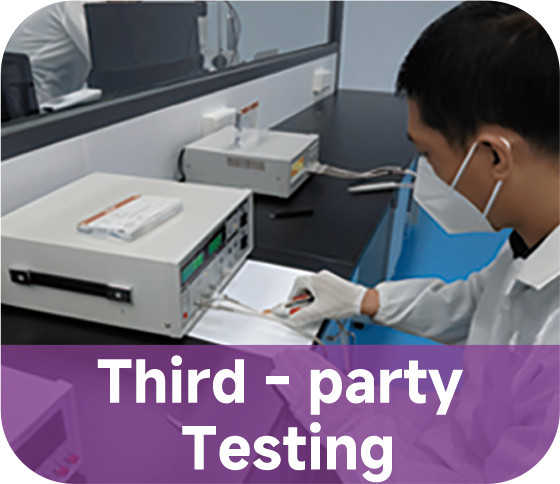If You Are

· An Online Platform Operator or Offline Supermarket/Hypermarket Retailer
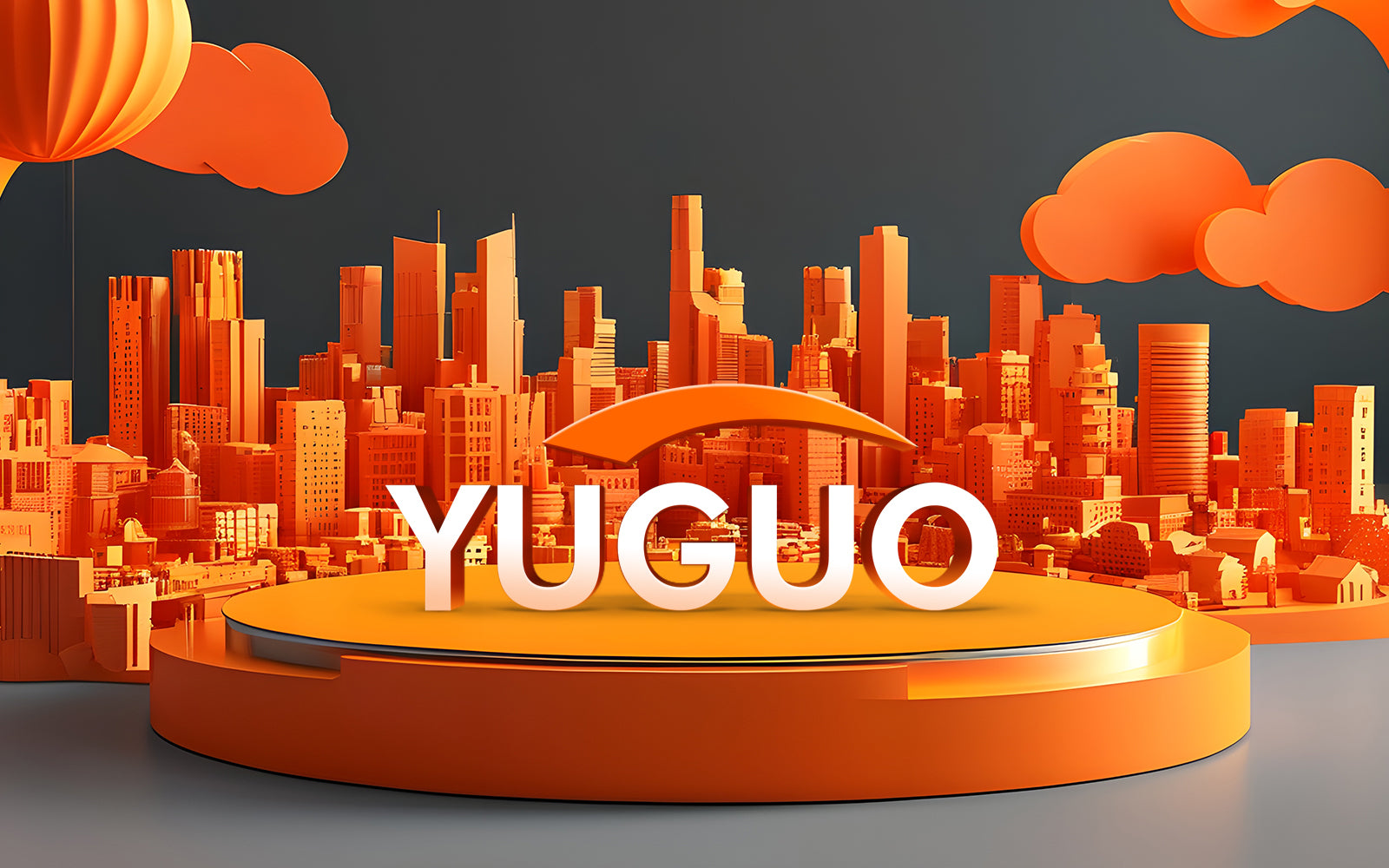
· A Brand Company

· A Traditional Foreign Trade Enterprise
Services
Yuguo Offers You Professional Supply Chain Services
Imaging appliances, Seasonal appliances, Kitchen appliances, Cleaning appliances, Personal care products, Outdoor gear
Midea, Xiaomi, Deerma, Dareu, Naturehike
Logitech, Razer, Hyperx, JBL, Bose, Head & Shoulders

Yuguo Addresses Your Business Challenges
If you seek a mature and stable supply chain to support product selection and procurement for your local market, choose Yuguo for one-stop direct sourcing services, from source factories to after-sales service for buyers. With access to 50,000 Chinese source factories, Yuguo provides a professional procurement process, strict quality control, reliable transactions, and a 100% responsibility guarantee system.
From product selection analysis to inventory management, we ensure smooth operations in product selection, testing, packaging, procurement, quality inspection, and sales, boosting your sales performance.
If you want to purchase popular branded products
Choose Yuguo. With a rich brand resource library and years of experience in brand export operations, Yuguo can solve your global brand product supply issues.
If you face funding shortages and difficult negotiations on business payment terms
Choose Yuguo, which offers flexible low-cost payment terms ranging from 30 to 90 days, ensuring rapid business progress, reducing business risks, and improving capital flexibility.
If you have a supply chain but lack a mature quality inspection system
Choose Yuguo. Yuguo established an International Testing and Certification Service Center in 2019, providing one-stop solutions for global certification applications, project initiation, initial sample inspection, pre-inspection, rectification, certification acquisition, training, factory audits, goods inspection, and container supervision, safeguarding compliance and risk control for global enterprises.
Full Process of Yuguo's Direct Purchasing Cooperation
Product Development Process
If you want customized products but worry about the complexity, Choose Yuguo for customized direct sourcing services. Yuguo can customize and develop products based on customer needs, making them better align with customer and market demands, creating high-quality "exclusive" items.
Introduction to Value-Added Services

Product Testing/Certification Service Center
Founded in 2019 within the Yuguo Cross-border family, our certification center has grown over five years and now includes multiple technical specialists in product certification, all with years of experience in various testing laboratories. We offer a full range of services from certification application, project initiation, initial sample inspection, pre-inspection, rectification, certification acquisition, and training, safeguarding enterprise compliance and risk control.
With years of practical experience in wireless, electronics, structure, electromagnetic compatibility and radiation, energy efficiency, and chemistry, we can accurately and professionally help enterprises achieve rapid certification at the lowest cost.
Leveraging Yuguo Cross-border's industry influence, we collaborate with various testing laboratories to uphold the principle of one-on-one gold service and strive to create cost-saving certification solutions with discounts of 5% to 20% below market prices.

Product Testing/Certification Service Center
Founded in 2019 within the Yuguo Cross-border family, our certification center has grown over five years and now includes multiple technical specialists in product certification, all with years of experience in various testing laboratories. We offer a full range of services from certification application, project initiation, initial sample inspection, pre-inspection, rectification, certification acquisition, and training, safeguarding enterprise compliance and risk control.
With years of practical experience in wireless, electronics, structure, electromagnetic compatibility and radiation, energy efficiency, and chemistry, we can accurately and professionally help enterprises achieve rapid certification at the lowest cost.
Leveraging Yuguo Cross-border's industry influence, we collaborate with various testing laboratories to uphold the principle of one-on-one gold service and strive to create cost-saving certification solutions with discounts of 5% to 20% below market prices.
Global Certification Coverage
Global +

EU CE
CE certification applies only to the basic safety requirements ensuring that products do not jeopardize the safety of humans, animals, or goods, rather than general quality requirements. Harmonized directives only stipulate primary requirements, while general directives delegate tasks to standards. Therefore, the accurate meaning is that the CE mark is a safety conformity mark, not a quality conformity mark. It constitutes the "essential requirements" at the core of European directives. The "CE" mark is a safety certification mark regarded as a passport for manufacturers to access the European market.
CE stands for "CONFORMITE EUROPEENNE." In the EU market, the "CE" mark is a mandatory certification mark. Both products manufactured within the EU and those produced in other countries must be affixed with the "CE" mark to circulate freely on the EU market, demonstrating compliance with the basic requirements of the EU's New Approach to Technical Harmonization and Standardization directives. This is a mandatory requirement of EU law for products.
ROHS
The RoHS Directive originated from Directive 2002/95/EC passed by the European Parliament and the Council on January 27, 2003, known as the "Restriction of Hazardous Substances" in electrical and electronic equipment. It is one of the EU's environmental protection standards aiming to limit the use of certain hazardous substances in electrical and electronic equipment to reduce their impact on the environment and human health. Initially, six hazardous substances—lead, mercury, cadmium, hexavalent chromium, polybrominated biphenyls, and polybrominated diphenyl ethers—were banned from use in electronic products.
RoHS 2.0 subsequently added four phthalates: di(2-ethylhexyl) phthalate (DEHP), benzyl butyl phthalate (BBP), dibutyl phthalate (DBP), and diisobutyl phthalate (DIBP), expanding the controlled hazardous substances to ten. Relationships between RoHS and REACH & WEEE Certifications:
1. Relationship with REACH Certification: REACH certification focuses on the registration, evaluation, authorization, and restriction of chemicals, covering a broader scope encompassing almost all chemicals and their products.
2. Relationship with WEEE Certification: WEEE certification is a directive on the waste management of electrical and electronic equipment, primarily regulating the recovery, disposal, and reuse of waste electrical and electronic products.
Korea KC
Announced by the Korea Agency for Technology and Standards (KATS) on August 20, 2008, the new certification system KC (Korea Certification) will be implemented from January 1, 2009, under the Korean Electrical Appliances and Consumer Products Safety Control Act. It is a mandatory certification system to prevent hazards and obstacles caused by electrical appliances, such as fires and electric shocks. Electrical appliances subject to safety certification must obtain certification before manufacturing and sales.
Therefore, the effectiveness of the electrical appliance safety management system is ensured to protect the lives and property of Korean consumers. Before entering the Korean market, enterprises should comply with relevant laws and regulations of Korea's current Product Safety Basic Act, Electrical Appliances and Consumer Products Safety Control Act, and Special Act on Child Product Safety. For some products requiring prior safety management, they must pass the KC certification before being sold. For certified products and other unpre-controlled products, according to the Product Safety Basic Act, the Korean Consumer Protection Board will conduct routine inspections annually. Products posing a threat to consumer safety will be subject to recall and control measures.
Japan PSE
PSE certification is a mandatory safety certification in Japan, indicating that electrical and electronic products have passed the safety standards tests stipulated by Japan's Electrical Appliance and Material Safety Law (DENAN Law) or international IEC standards. According to Japan's Denan Law, 457 types of products must obtain safety certification to enter the Japanese market. Among them, 116 Category A products should obtain the diamond-shaped PSE mark, while 341 Category B products should obtain the circular PSE mark.
The certification process includes application preparation, testing and evaluation, factory audits, and compliance maintenance. By obtaining PSE certification, manufacturers can ensure their products comply with Japanese safety regulations and legally enter the Japanese market. Manufacturers should choose qualified testing institutions for testing and maintain good compliance records to meet market supervision and inspections.

CE certification applies only to the basic safety requirements ensuring that products do not jeopardize the safety of humans, animals, or goods, rather than general quality requirements. Harmonized directives only stipulate primary requirements, while general directives delegate tasks to standards. Therefore, the accurate meaning is that the CE mark is a safety conformity mark, not a quality conformity mark. It constitutes the "essential requirements" at the core of European directives. The "CE" mark is a safety certification mark regarded as a passport for manufacturers to access the European market.
CE stands for "CONFORMITE EUROPEENNE." In the EU market, the "CE" mark is a mandatory certification mark. Both products manufactured within the EU and those produced in other countries must be affixed with the "CE" mark to circulate freely on the EU market, demonstrating compliance with the basic requirements of the EU's New Approach to Technical Harmonization and Standardization directives. This is a mandatory requirement of EU law for products.
The RoHS Directive originated from Directive 2002/95/EC passed by the European Parliament and the Council on January 27, 2003, known as the "Restriction of Hazardous Substances" in electrical and electronic equipment. It is one of the EU's environmental protection standards aiming to limit the use of certain hazardous substances in electrical and electronic equipment to reduce their impact on the environment and human health. Initially, six hazardous substances—lead, mercury, cadmium, hexavalent chromium, polybrominated biphenyls, and polybrominated diphenyl ethers—were banned from use in electronic products.
RoHS 2.0 subsequently added four phthalates: di(2-ethylhexyl) phthalate (DEHP), benzyl butyl phthalate (BBP), dibutyl phthalate (DBP), and diisobutyl phthalate (DIBP), expanding the controlled hazardous substances to ten. Relationships between RoHS and REACH & WEEE Certifications:
1. Relationship with REACH Certification: REACH certification focuses on the registration, evaluation, authorization, and restriction of chemicals, covering a broader scope encompassing almost all chemicals and their products.
2. Relationship with WEEE Certification: WEEE certification is a directive on the waste management of electrical and electronic equipment, primarily regulating the recovery, disposal, and reuse of waste electrical and electronic products.
Announced by the Korea Agency for Technology and Standards (KATS) on August 20, 2008, the new certification system KC (Korea Certification) will be implemented from January 1, 2009, under the Korean Electrical Appliances and Consumer Products Safety Control Act. It is a mandatory certification system to prevent hazards and obstacles caused by electrical appliances, such as fires and electric shocks. Electrical appliances subject to safety certification must obtain certification before manufacturing and sales.
Therefore, the effectiveness of the electrical appliance safety management system is ensured to protect the lives and property of Korean consumers. Before entering the Korean market, enterprises should comply with relevant laws and regulations of Korea's current Product Safety Basic Act, Electrical Appliances and Consumer Products Safety Control Act, and Special Act on Child Product Safety. For some products requiring prior safety management, they must pass the KC certification before being sold. For certified products and other unpre-controlled products, according to the Product Safety Basic Act, the Korean Consumer Protection Board will conduct routine inspections annually. Products posing a threat to consumer safety will be subject to recall and control measures.
PSE certification is a mandatory safety certification in Japan, indicating that electrical and electronic products have passed the safety standards tests stipulated by Japan's Electrical Appliance and Material Safety Law (DENAN Law) or international IEC standards. According to Japan's Denan Law, 457 types of products must obtain safety certification to enter the Japanese market. Among them, 116 Category A products should obtain the diamond-shaped PSE mark, while 341 Category B products should obtain the circular PSE mark.
The certification process includes application preparation, testing and evaluation, factory audits, and compliance maintenance. By obtaining PSE certification, manufacturers can ensure their products comply with Japanese safety regulations and legally enter the Japanese market. Manufacturers should choose qualified testing institutions for testing and maintain good compliance records to meet market supervision and inspections.
Cooperating Certification Bodies
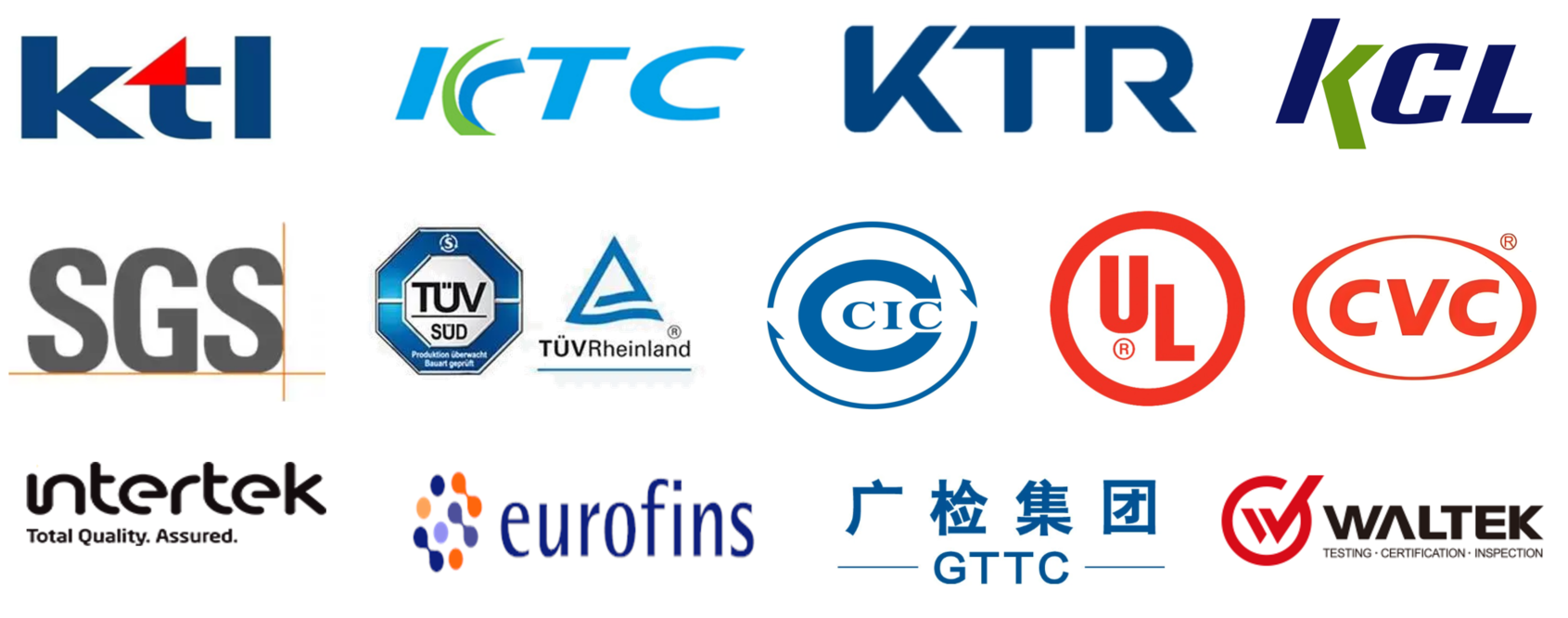
Certification Cases
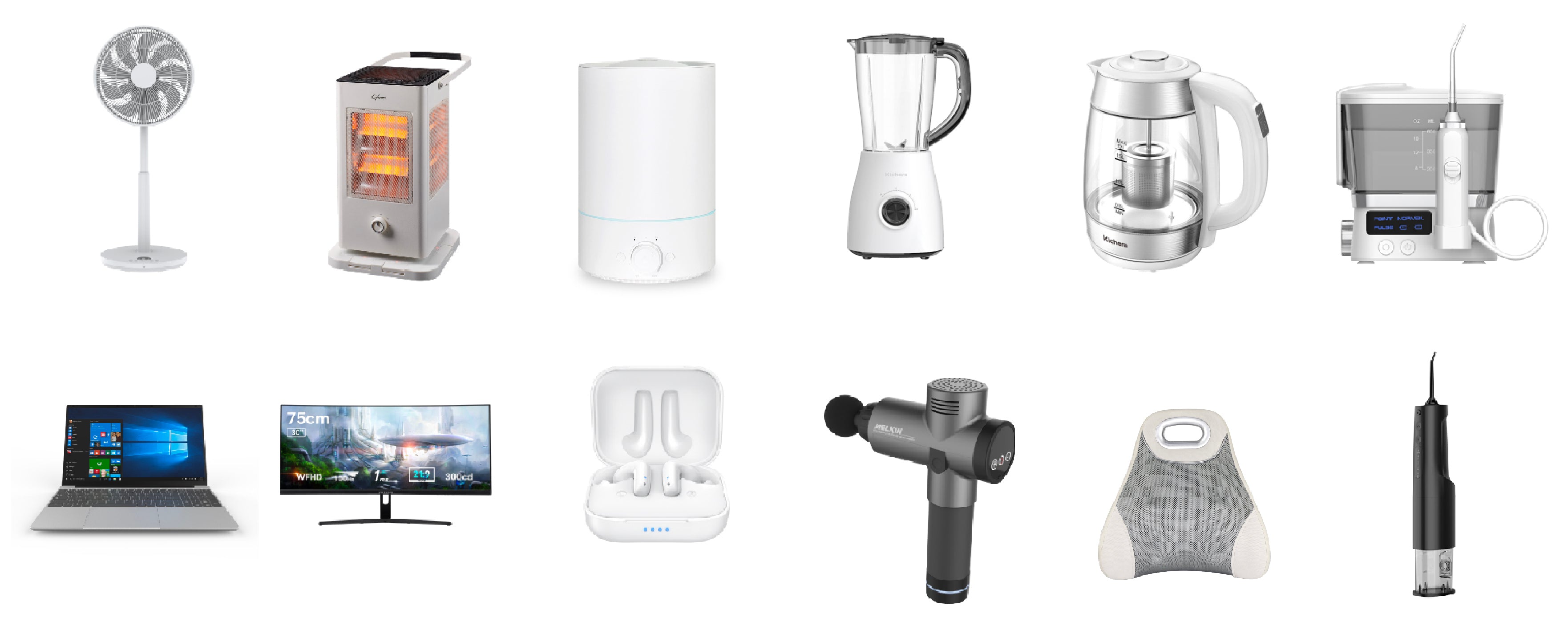
Cooperating Certification Bodies

Certification Cases

Professional Quality Inspection Services
Worried about unprofessional quality control? Choose Yuguo's professional quality inspection team for quality tracking from the source to after-sales.
Factory Audit Services
- SLCP Social Labor Convergence
- GSV Anti-Terrorism Security
- Higg Sustainability
- ICS Social Compact
- BSCI Business Social Compliance Initiative
- Sedex Ethical Trading Initiative
- QMS Quality Management System
WCA Workplace Conditions - Assessment
- FCCA Factory Capacity Assessment
- Occupational Health and Safety Assessment
Product Quality Inspection Fields
- 3CConsumer Goods 3C
- Fitness Equipment
- Digital Audio
- Outdoor Gear
- Cleaning Appliances
- Footwear & Apparel
- Seasonal Appliances
- Bathroom Accessories
- Kitchen Appliances
- Home Textiles
- Personal Care Products
- Power Tools
- Pet Products
- Hardware & Plastics
- Health & Massage
- Household Cleaning Products
